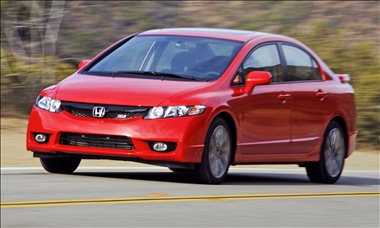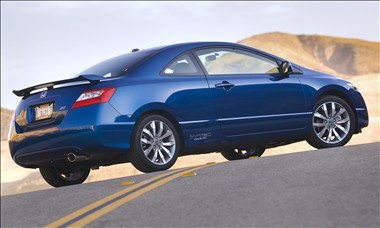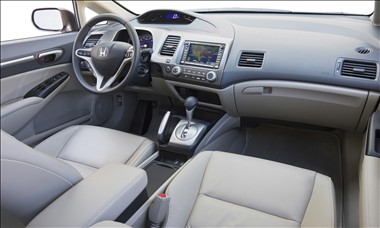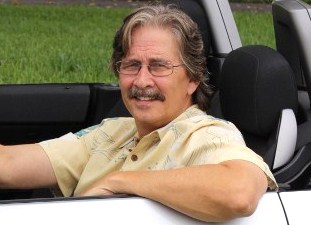In today's high-priced car market, many car shoppers have been buying "older" vehicles that have aged well as a way to save money. Should the 2011 Honda Civic be on that list? Well, of course, a lot of it will come down to its reliability.

And, no surprise, despite some issues that all cars experience over time, history has proven the 2011 Civic to have done much better than most when it comes to long-term reliability. So, yes, it seems to have aged very well, making it a viable and budget-friendly option when shopped for with care.
J.D. Power has given it a Quality & Reliability score of 86/100, which is "Great". In addition, with proper maintenance and care, a well-maintained 2011 Civic can last well beyond 200,000 miles and there are documented examples of some with over 300,000 miles.
The key to the 2011 Civic's longevity lies in Honda's overall commitment to solid construction, well-designed engines, and drivetrain components that, when properly serviced at regular intervals, can withstand the test of time.
Still, all cars have mechanical issues, including some that may be specific to a particular model, even those with strong reliability reputations. That's just a natural part of car ownership.
So here, ...
- We'll take a look at the 2011 Civic's overall pros and cons all these years later.
- Next, we'll review its features as it was originally released in 2011.
- Then we'll list mechanical problems that at least some owners have experienced that should be checked before buying.
2011 Honda Civic Pros
Reliability and Durability: Hondas, including the Civic, are known for their reliability and longevity. A well-maintained 2011 model could still offer dependable performance.
Lower Purchase Price: An older model is clearly cheaper than a newer vehicle in the current high-priced market. However, while this may save a substantial amount upfront, the savings have to be weighed against the risk for increased maintenance and repair costs going forward.
Fuel Efficiency: The Civic typically has good fuel economy, which can still save money on gas expenses compared to larger or less efficient vehicles.
Availability and Parts: Since the Honda Civic is a popular car, finding replacement parts and mechanics who can work on it is generally easier and more cost-effective than with some less common models.
Resale Value: Older cars have already undergone the steepest part of their depreciation curve, so buyers won't experience the same rapid depreciation as with a late model vehicle.
Handling: It offers a smooth and comfortable ride with responsive handling, making it suitable for daily commuting.
2011 Honda Civic Cons
Age and Wear: A 2011 Civic might have accumulated significant mileage and wear over the years. Components such as suspension, brakes, and engine parts may be closer to needing replacement or repairs, potentially adding to maintenance costs. While Hondas are generally reliable, any used car, especially one that's over a decade old, may require unexpected repairs or replacements.
Outdated Technology: The 2011 model lacks many of the modern technological features found in newer cars, such as advanced safety systems, updated infotainment, and connectivity options.
Safety Features: Though the 2011 Civic has standard safety features, it might not have the latest safety advancements found in newer models.
Interior Quality: Some owners find the interior materials to be less impressive compared to rival vehicles in the same class.
Road Noise: The cabin might experience more road noise compared to competitors, which can be bothersome during highway drives.
Styling: Some individuals find the exterior and interior design to be a bit plain or outdated compared to other vehicles in the segment.
2011 Honda Civic Review
There's just so much to like about the 2011 Civic. It's a small car that's fun to drive, gets good gas mileage, has a solidly-constructed and comfortable cabin, is available in both sedan and coupe body styles, has strong resale values and has earned a solid reputation for reliability.
The Civic has long been at the top of the small car segment thanks to its impressive road manners and outstanding build-quality and reliability history. It also doesn't hurt that it's available in a wide choice of powertrains and body styles, increasing its appeal to a broader market.
In addition to coupe and sedan offerings, there's also the Civic Hybrid and the natural-gas powered Civic GX. And for drivers interested in higher-performance, there's also the Civic Si.
As good as the Civic is, it's usually a good idea to check out the competition for a more fully informed decision. Worthy rivals would include the Mazda 3, perhaps the Civic's strongest competitor when it comes to performance. The Volkswagen Jetta and the recently redesigned Hyundai Elantra have their own set of strengths.
And for those in the market for a hybrid, the Toyota Prius is still top dog.
Trims, Standard Features And Options:
The 2011 Honda Civic is classified as a compact car and is offered in both sedan and coupe forms, each with five primary trims: DX, LX, EX, EX-L and Si. The Civic sedan is also available in several other trims: DX-VP (Value package), LX-S, Hybrid and GX.
The Civic DX comes with the basics, with standard features including power windows, a tilt/telescoping steering wheel, 15-inch steel wheels and a height-adjustable driver seat. No, it doesn't even include a stereo. However, the DX sedan's optional Value package adds air conditioning, a 4-speaker CD/MP3 audio system and an auxiliary audio jack.
You May Also Like:
Do This For The Best Trade-In Price
Easily Negotiating The Lowest Price
The LX then adds power mirrors, power doorlocks, 16-inch steel wheels, cruise control, keyless entry, a center console with a sliding armrest and a folding rear seatback, while the LX-S sedan adds a leather-wrapped steering wheel, front sport seats, alloy wheels, a rear spoiler and a chrome exhaust outlet.
Moving up to the Civic EX adds a sunroof, a 6-speaker audio system (coupes get an exclusive subwoofer), 16-inch alloy wheels, a sunroof, a 60/40-split rear seatback with a fold-down armrest, ambient console lighting, steering-wheel-mounted audio controls and a USB input. The EX-L then tacks on leather upholstery, heated front seats and heated exterior mirrors.
The more sport-oriented Civic Si is equipped much like the EX, but also gets a more powerful engine, a sport-tuned suspension, sport seats, 17-inch alloy wheels, performance tires, foglights and unique interior trim accents.

For those looking for fuel-sippers, the GX is similarly equipped as the LX, while the Hybrid comes with the EX's features plus automatic climate control.
There aren't a whole lot of available options. Si, EX, EX-L and Hybrid models can be equipped with a navigation system with Bluetooth phone connectivity and satellite radio, while the Hybrid can also add heated leather seats.
Engines, Powertrain And Gas Mileage:
The 2011 Honda Civic is a front-wheel-drive vehicle offered with a choice of available engines and transmissions. Powering the DX, LX and EX models is a 1.8-liter four-cylinder engine that outputs 140 horsepower and 128 pound-feet of torque. It's paired with a standard 5-speed manual transmission while a 5-speed automatic is optional.
The Civic GX has a 1.8-liter engine fueled with natural gas and produces 113 horsepower. In terms of emissions, it's the cleanest mass-producted internal-combustion-engine car in the United States. Its cruising range, however, is limited to 200 mileages, but refueling apparatus can be installed in your garage.
The 2011 Civic Hybrid is equipped with a gasoline/electric hybrid powertrain, featuring a 1.3-liter four-cylinder engine that produces 110 horsepower and is coupled with a continuously variable transmission (CVT).
Under the hood of the Civic Si is a 2.0-liter four-cylinder good for 197 horsepower. It's paired with a 6-speed manual transmission only as well as a limited-slip front differential. It can go from a standstill to 60 mph in a very respectable 7.1 seconds.
One of the positive attributes of a Honda Civic is above-average fuel economy for almost all models. The EPA-estimated gas mileage of those with the standard 1.8-liter engine is 25 mpg city and 36 mpg on the highway with the automatic, and 26 mpg city and 34 mpg highway with the manual.
Gas mileage for the GX comes in at 24 city and 36 highway. As expected, the Hybrid is the best in the lineup, standing at 40 mpg city and 45 mpg highway. The gas mileage for the Civic Si comes in at 21 and 29, respectively.
Safety:
Standard safety features across all Civic models include antilock brakes (four-wheel on the EX and SI, the others have rear drums), front-seat side airbags, full-length side curtain airbags and active front head restraints. In addition, stability control is standard on the EX-L, Hybrid and Si (not available on other models).
In government crash tests, the 2011 Honda Civic scored the highest rating of five stars for front-impact occupant protection. In side-impact testing, the Civic earned five stars for rear passenger protection and four stars for front passenger protection.

Interior:
The 2011 Honda Civic's cabin is attractive, comfortable and user-friendly. Gauges and controls are well-designed and easy to see and use, while its materials quality is generally above average, but not outstanding. The seating, both front and rear, is comfortable and supportive.
And the rear floor is completely flat, allowing for extra middle-passenger legroom. The trunk of the Civic sedan has a cargo capacity of 12 cubic feet. The Hybrid's capacity drops to 10 cubes while the GX's drops to 6.
A unique element of the Civic's interior is the placement of a digital speedometer and gas gauge at the base of the windshield, in addition to the usual analog tachometer in back of the steering wheel. Most find it easier to make a quick speed check, but some have found it a little distracting.
Drive:
One of the top qualities of the Honda Civic is its more capable and confident handling than one typically finds in a compact car (outside of the more performance-biased Mazda 3). While most drivers will likely be pleased with the Civic's road manners, those wanting more can opt for the Civic Si's more powerful engine and sporty suspension.
The overall ride quality is generally quite smooth, although not outstanding in this regard. Road noise, however, is on the high side, which is somewhat of a weak spot for most Hondas. The natural-gas Civic GX is quite slow, as one would expect. But so is the Hybrid, a bit disappointing as compared to the Toyota Prius.
2011 Honda Civic Mechanical Problem Watchlist:
Although known for its reliability, the 2011 Civic still had some reported issues by owners. It's important to note that not all vehicles experienced these problems, and Honda addressed some through recalls or warranty repairs. Regular maintenance and timely servicing may have also helped prevent or mitigate these issues.
The following areas should be included in an inspection prior to purchase:
Engine Block Cracks: There were reports of potential engine block cracks in some models of the 2006-2011 Civics, particularly in the 1.8-liter engine. This issue could lead to coolant leakage and overheating problems.
Transmission Issues: Some drivers encountered transmission problems, including jerky or rough shifting, especially in automatic transmission models. Premature wear or failure of transmission components was reported in a subset of vehicles.
Airbags: Honda, among other automakers, issued recalls to replace the affected Takata airbag inflators in their vehicles. The recall process involved replacing the faulty airbag inflators with newer, safer components to eliminate the risk of inflator rupture. It is likely that this has been completed in most vehicles but should still be checked.
Paint Quality: Complaints regarding the paint's durability and susceptibility to chipping or fading were noted by some owners.
Suspension and Brakes: Some drivers reported premature wear on suspension components and brakes, leading to increased noise or reduced performance.
AC Compressor Failures: A few instances of AC compressor failures were reported, leading to issues with the air conditioning system.
Electrical Problems: Some owners experienced electrical issues, such as problems with power windows, door locks, or dashboard lights.
 By Josh Rosenberg
By Josh Rosenberg